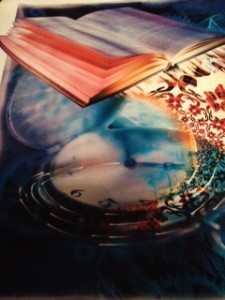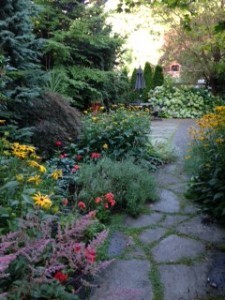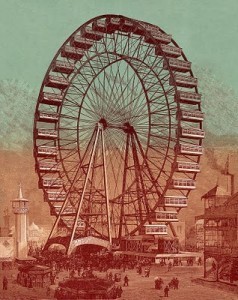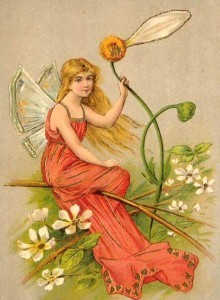Pam Binder's Blog, page 6
November 13, 2014
Writing Tips
The Sense of TASTE
How do we learn? You’re probably wondering what an odd question. But ponder the question for a moment.
In school, we are taught through listening to a lecture, through reading textbooks or through writing down answers or constructing sentences. When you read a novel those same principles are in play.
Taste is a sense that is so much fun. Memorable scenes can be created using this wonderful sense. One of my favorite movies, as my students all know, is CHOCOLATE, with Johnny Depp, Juliette Binoche and Judi Dench. The appreciation and meaning to each character plays a major theme throughout the movie. My love of chocolate even appears in every book I write. So much so that in THE INSCRIPTION, I did extensive research just to make sure chocolate was available in Europe during the time my story took place. I still love that scene.
When you add taste into your novel choose wisely, however. First think about the emotion you wish to create in your novel. What do you want your characters to feel when they are eating? Is the food in your novel seasonal? Yes, I know that in modern times, all foods are available. But when we see pumpkins we think about fall – pumpkin pie, Thanksgiving turkey. In the winter it is all about the hot cocoa, thick soups, and during the Holiday season we think about sugar cookies. Refer to your family traditions and add them to your story. These are the emotions you are searching for that will make your characters come alive.
What seasonal foods would you use in your novels to evoke spring and summer?
Have a great day writing,
Pam
November 6, 2014
WRITING TIPS
Writing Tips – The Six Senses – first in a six part series.
THE SENSE OF TOUCH
We all have a story to tell. Some of us shout it from the rooftop, while others share the tale by a cozy fire. That doesn’t matter. What DOES matter is that our story holds our reader’s attention from the moment we say – ONCE UPON A TIME to THE END. One way to keep our reader’s attention is to make sure we include the six senses – or setting. This blog series will explore all six senses. The first is the SENSE OF TOUCH
How important is the sense of touch?
To expand – what impression will your reader have if your character’s skin feels like leather vs. silk? Or the clothes your character wears – velvet vs. cotton? In each case your readers will have a different reaction. If you continue to debate the importance of touch, try this experiment.
Touch a piece of fabric and examine your impression. If it is smooth – how do you feel? If it is rough – how does that change your reaction?
The sense of touch is used in writing to help evoke emotions. The inspiration for CHRISTMAS IN THE HIGHLANDS happened when my husband and I visited Sterling Castle in Scotland. It was snowing those fat, fluffy snowflakes that make you long for a cup of hot cocoa while you snuggle with the person you love beside a roaring fire. All three of those images play a major role in my romance novel.
We know how we feel about our characters. We can picture them in our mind’s eye. The challenge is making sure our readers feel the same way. I often tell my students that unfortunately we can’t go home with our readers. We can’t look over their shoulders and explain how soft the rose petals feel beneath our character’s bare feet, or how cold the snow feels against their skin. In each case an emotion and reaction will be evoked.
What emotion do you want your readers to feel?
Have a GREAT day writing,
Pam
August 13, 2014
August Eve
August Eve or Lughnassandh is one of the three main Celtic Festivals: Samhain, in the Fall, Bealtaine in Spring and Lughnassadh, in summer. Lughnassadh is celebrated when the harvest is over, and the fruits and grains are stored and ready for use during the long months ahead.
Lughnassadh is also named for the Irish sun God, LUGH
But what set him apart?
First his father was one of the Tuatha De Danann, and his mother was Fomorian. The marriage between his parents was meant to bring these two warring factions together. It was a rocky alliance at best. The Femorians grew more and more warlike and the crops suffered. This was a time when all things were connected.
And second, when Lugh grew to manhood he set out to serve the current king of the Tuatha De Dannann but the gatekeeper would not let him pass unless he had a skill with which he could serve the king. Lugh asked if they needed a smith, a champion, a swordsman, a harpist, a hero, a poet, a historian, a sorcerer, or a craftsman. The gatekeeper told him that they already had those jobs filled. But when Lugh told the gatekeeper that he could do all sills simultaneously, Lugh gained entrance.
Third. In the battle that showcased all of his talents, Lugh defeated the Femorians and brought life back to the land. In memory of his triumph, he instituted a harvest festival in August. The festival survived long into Christian times and is still celebrated under a variety of names. Lunasa is now the Irish name for the month of August.
Have a great day,
Pam
August 1, 2014
Time Travel Series
 In honor of the launch of the Starz adaptation of Diana Gabaldon’s, Outlander, on August 9th, I’m sharing what I’ve learned on one of my favorite subjects: Time Travel.
In honor of the launch of the Starz adaptation of Diana Gabaldon’s, Outlander, on August 9th, I’m sharing what I’ve learned on one of my favorite subjects: Time Travel.Although it might feel that the idea of time travel is a modern concept, humans have talked about, written or dreamed of the idea for thousands of years.
Of course the 1895 novel The Time Machine by H. G. Wells moved time travel to the forefront of the public imagination, non-technological forms of time travel have appeared in a number of earlier stories such as Charles Dickens’ A Christmas Carol. Historically, the concept dates back to the early mythologies of Hinduism and Buddhism through ancient folk tales.
Ancient folk tales and myths sometimes involved something akin to traveling forward in time; for example, in Hindu mythology, there is a story of the King who travels to heaven to meet the creator and is shocked to learn that many ages have passed when he returns to Earth. Buddhist also mention time moving at a different pace, and that people live much longer. This also happens in Celtic mythology. If someone drops through a fairy circle into the realm of the Sidhe, when they return they will still be young, but their family and friends will have died of old age.
Another one of the earliest known stories to involve traveling forward in time to a distant future was in a Japanese tale. It was about a young fisherman who visits an undersea palace and stays there for three days. After returning home to his village, he finds himself 300 years in the future, when he is long forgotten, his house in ruins, and his family long dead.
The trick to writing believable time travel stories is all about the world building. When you watch Outlander on August 9th, be aware of how meticulous Ms. Gabaldon creates her world. I’m in awe!
Have a great day,
July 28, 2014
STORYTELLER
a: teller of stories,
b: a reciter of tales,
c: a writer of stories.
I recently researched a topic for a welcome letter for the PNWA writer’s conference that I’d like to share. It discusses what it means to be a storyteller.
The word in its current form, dates as far back as 1200 in Old French. It goes even further back in history if you consider spelling variations in Latin and Greek. In Irish, the word for storyteller is seanchaí. But what does it mean to be a storyteller? How do storytellers find their themes? Can anyone become one? Or is there a secret DNA that once mapped by science will determine society’s storytellers. My thoughts started spinning and this is my conclusion..
If you like to think of what-if scenarios, if you question, or imagine, re-write the ending of a novel in your head, or wonder what inspired your favorite author to write their series — you are a storyteller.
Once you accept that you are a storyteller, the next step is the realization that you also have a theme. Theme is your message. It is the reason you are writing your story. Your theme is like a golden thread that weaves not only through one story, but throughout every word you write. Everyone has one, even if the concept seems as hard to hold as Irish mist. For example someone noticed that my stories focus on strong women challenging the system. Challenging systems is one of my themes.
As storytellers, we live in a world of creative imagination. Of wonder. Of Discovery. We have our own unique theme to tell. There is no reason to map out our DNA. The proof is right there in front of us every time we think of a new story idea. So go forth, as Bard William Shakespeare might say, and write your stories.
Pam, a born seanchaí
April 11, 2014
October 24-26, 2014 – Surrey Writers Conference
Presenter: Pam Binder
October 17-19, 2014 – Emerald City Conference
http://gsrwa.org/ecwc/conference
Date: October 17-19, 2014
Location: Westin Hotel, Bellevue, WA
Topic: The Six Key Scenes In A Novel
Description:
The Six Key Scenes In A Novel: Why do some scenes stand out long after you’ve finished the novel? Why do they grab you and never let go? Is it a happy accident or premeditated? Join Pam Binder as she explains the elements of the six key scenes of their novel. During this session attendees are given the opportunity to write these scenes as well.
September 29, 2013
The Writer’s Life – roller coaster or merry-go-round?
 Ask yourself; is your writing life a roller coaster, or a merry-go-round?
Ask yourself; is your writing life a roller coaster, or a merry-go-round?
This question occurred to me after watching the 1989 movie Parenthood with Steve Martin, Mary Steenburgen, Jason Robards and one of my favorite actors, Keanu Reeves, before he became the mega star of Matrix. Steve Martin’s character, Gil, wanted a quiet, uneventful life, devoid of the highs and lows of raising children, and building a career. His life wasn’t going as he’d planned. While bemoaning this reality, his grandma played by Helen Shaw, engaged him in the following conversation.
“You know, when I was nineteen, Grandpa took me on a roller coaster.
“Oh?” Gil said.
“Up, down, up, down. Oh, what a ride. I always wanted to go again. You know, it was just so interesting to me that a ride could make me so frightened, so scared, so sick, so excited, and so thrilled all at the same time. Some didn’t like it. They went on the merry-go-round. That just goes around. Nothing. I like the roller coaster. You get more out of it.”
Wise words. You take a chance when you buy a ticket to ride the roller coaster. You know what to expect on a merry-go-round. Merry-go-rounds are safe, predictable. Roller coasters mirror life. Your blood pumps. Your heart races. You feel alive.
View it from a writer’s perspective. On a roller coaster, the varied emotions experienced are endless, as is the cacophony of sights, sounds and colors. Story ideas abound. A merry-go-round is not without its appeal, however. In fact, for a time, that was my favorite ride, no doubt because of a near-death experience. When I was a child, my aunt caught me before I plummeted toward earth. But when I started writing I chose the roller coaster.
Story ideas develop through our experiences: those we meet alone the way, our adventures, and yes, the writer’s organizations we join. PNWA is my personal writer’s resource. Now, go out and choose the unexpected path. Live life. Ride the roller coaster.
Have a great day creating your future,
Pam
September 28, 2013
Genre versus Literary Fiction
These days the lines are blurring between genre and literary fiction. Romance books are layered and textured, mystery novels are so seductive you can taste the air, and fantasy — well — all I’ll say on the matter is GAME OF THRONES.
For more of my thoughts on the topic, go to the University of Washington’s website below and click on the arrow marked, Watch the video.
Have a great day writing and creating your future,
Pam
http://www.pce.uw.edu/certificates/popular-fiction.html
June 21, 2012
Summer Solstice
“On the Summer Solstice …
Whatever is dreamed on this night,
will come to pass.”
—William Shakespeare, A Midsummer Night’s Dream
First the boring definition: “Summer Solstice occurs exactly when the axial tilt of a planet’s semi-axis in a given hemisphere is most inclined toward the star that it orbits. Earth’s maximum axial tilt to our star is . . . .”
For those interested in more of the same, turn to Wikipedia, but if you want the fun part. . . read on.
It is sunny outside so we feel better. We have more energy and we are more in balance. No wonder our ancestors found cause for celebration.
• In 2254 BC, The Chinese Emperor Yao, designated the Winter Solstice as male, (Yang) and the Summer Solstice as female, (Yin).
• The Romans called the Summer Solstice, the “Grove of Diana.”
• In ancient Egypt, the Summer Solstice was the most important day of the year because the sun was at its highest and the Nile River began to rise. Being able to predict the flood of the river was so important that this time marked the beginning of the Egyptian New Year.
• Scandinavian countries mark this day with dances and bonfires. The dances are usually around a maypole.
• For the Celts Summer Solstice is also known as Litha. Summer for them begins on Beltane (May 1st) and ends on Lughnassadh (August 1st) with the Summer Solstice midway between the two, marking MID –Summer. Those who celebrate Litha wear garlands or crowns of flowers in their hair.
• In Ireland, the Summer Solstice, is sacred to the White Mare Goddess, who was known in Ireland as Etain, in Wales as Rhiannon, and in France as Epona. It is also believed that on Midsummer’s night, elves and fairies would appear and if you picked fern seeds at the stroke of midnight, you would be able to see them.
The connection between the Summer Solstice and June weddings:
This was more than just the longest day of the year for ancient cultures. Many associated the prosperity of their crops with the fertility of human sexuality. The connection between fertile land and wombs became so powerful that pagans began to associate the celebration of the Summer Solstice with the time for marriage and the cycle of life.
Summer Solstice, is a time the Celts believed fairies bestowed good luck on humans. It is the time when the sun reaches the peak of its power and the earth is green with the promise of a bountiful harvest.
Take this opportunity to celebrate work and leisure, children and childlike play. Embrace your day and the magic and miracles it will bring.
Pam







